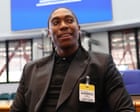
Recent global events have highlighted significant advancements and challenges in the realm of human rights, encapsulating how individuals strive for justice and nation-states wrestle with accountability. These stories, spanning continents, depict the resilience of those advocating for their rights and the intricate legal landscapes they navigate.
In the sphere of sports and human rights, South African runner Caster Semenya has been at the forefront of a battle for equality and fair treatment. Known for her exceptional talent and two-time Olympic gold medal achievements, Semenya recently welcomed a significant ruling from the European Court of Human Rights. The court concluded that she had not received a fair trial regarding the regulations that dictated she must lower her testosterone levels to compete in women’s sports. This moment marks a vital step not only for Semenya but also for broader discussions on how athletes’ rights should be prioritized and protected. Her victory serves as a reminder of the importance of fair competition standards that honor the rights and identities of all athletes.
Meanwhile, in Asia, human rights concerns within North Korea have been brought to the international spotlight through the courageous actions of Choi Min-kyung, a defector who has filed a lawsuit against North Korean leader Kim Jong-un. Choi’s legal action, pursued in a South Korean court, accuses the North Korean regime of perpetrating torture and sexual violence within its detention facilities. Seeking damages and accountability, Choi’s efforts underline the dire conditions faced by detainees and exemplify a growing demand for addressing crimes against humanity. By filing this lawsuit, Choi aims to catalyze further investigations and global awareness regarding the human rights abuses perpetrated by the North Korean regime.
In South Asia, Bangladesh faces a challenging chapter with the indictment of its former leader Sheikh Hasina, charged with crimes against humanity. These charges pertain to a lethal crackdown on anti-government protests, which led to over 1,400 fatalities. Currently in hiding in India, Hasina’s indictment in absentia by a judicial panel represents a notable development in ensuring leaders are held accountable for state actions violating human rights. This case reflects the complex dynamics involved when dealing with leaders who, despite geographical distance, remain entwined with their country’s legal and political processes.
While each narrative differs, together they illuminate a broader picture of the ongoing struggles and breakthroughs in human rights advocacy across the globe. From the introspective debate over athletic equity to the solemn calls for justice in North Korean detention facilities, to the political upheaval within Bangladesh’s governance, these stories underscore an urgent need for comprehensive strategies to uphold human rights. They invite contemplation on how international systems can strengthen mechanisms to support individuals and communities standing against injustices. Moreover, they remind us that although challenges are formidable, the perseverance and courage of individuals can drive meaningful change, nourishing hope for a more just and equitable world.
Source: {link}
